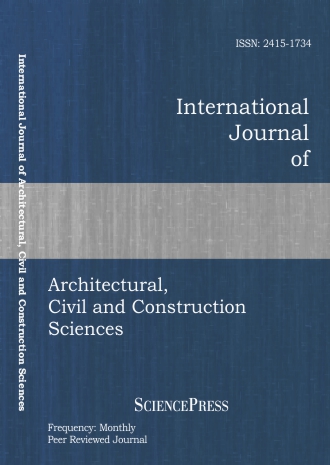
Scholarly
Volume:5, Issue: 12, 2011 Page No: 720 - 725
International Journal of Architectural, Civil and Construction Sciences
ISSN: 2415-1734
1332 Downloads
The Nonlinear Dynamic Elasto-Plastic Analysis for Evaluating the Controlling Effectiveness and Failure Mechanism of the MSCSS
This paper focuses on the Mega-Sub Controlled Structure Systems (MSCSS) performances and characteristics regarding the new control principle contained in MSCSS subjected to strong earthquake excitations. The adopted control scheme consists of modulated sub-structures where the control action is achieved by viscous dampers and sub-structure own configuration. The elastic-plastic time history analysis under severe earthquake excitation is analyzed base on the Finite Element Analysis Method (FEAM), and some comparison results are also given in this paper. The result shows that the MSCSS systems can remarkably reduce vibrations effects more than the mega-sub structure (MSS). The study illustrates that the improved MSCSS presents good seismic resistance ability even at 1.2g and can absorb seismic energy in the structure, thus imply that structural members cross section can be reduce and achieve to good economic characteristics. Furthermore, the elasto-plastic analysis demonstrates that the MSCSS is accurate enough regarding international building evaluation and design codes. This paper also shows that the elasto-plastic dynamic analysis method is a reasonable and reliable analysis method for structures subjected to strong earthquake excitations and that the computed results are more precise.
Authors:
References:
[1] M. Q. Feng and A. Mita 1995. Vibration control of tall buildings using